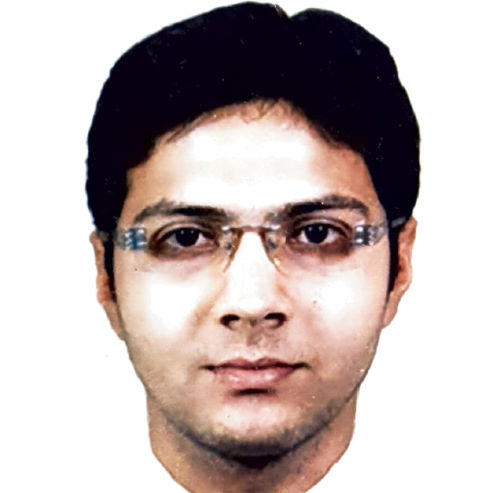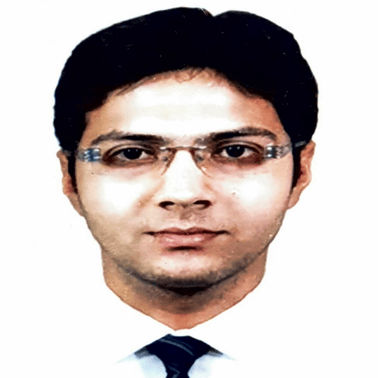How to Reduce Pimple Marks: Effective Treatments & Home Remedies
Pimple marks make one’s appearance dull and attractive. Also, it becomes severe if it remains untreated. Learn how to reduce pimple marks with skincare routines, medical treatments, and home remedies.

Written by
Last updated on 3rd Jul, 2025
Pimple marks are a common skin concern that can linger even after the breakouts have healed. Typically, these marks are dark spots and discolouration due to the inflammatory response and additional melanin production to combat pimples. However, unlike deep acne scars, which stem from tissue damage, pimple marks are temporary and fade over time with the right skincare routine and treatment. So, knowing more about the prevention, treatment and home remedies help to manage it effectively.
Prevention of Pimple Marks
The process of preventing pimple marks starts from stopping its outbreak. With the right skincare and lifestyle, it is possible to avoid this skin condition. Also, early acne treatment practices lower the risk of marks and scars. It also prevents pimples from developing and lowers the risks of widespread whiteheads, blackheads, and painful and deep acne.
Thus, everybody should maintain a daily skincare routine that includes –
- Use a mild cleanser daily to wash the face. Use it twice a day.
- After the bath, let the skin dry. So, pat the skin gently with a towel. After that, apply some moisturising lotion.
- Apply a broad-spectrum sunscreen with at least SPF 30. It protects the skin from exposure to UV rays, skin cancer, and premature ageing. Put on sunscreen every two hours while sweating or swimming.
- Always wear protective clothing such as long-sleeved shirts, long pants, and wide hats. Also, sun-protective clothing is available specifically made to block UV rays.
- Avoid travelling at the peak heating hours between 10 am and 4 pm.
- Shave carefully with a clean and sharp razor. Apply lotion, gel, or shaving cream before shaving.
Also, maintain healthy dietary and lifestyle habits such as –
- Eating plenty of fresh vegetables, fruits, lean proteins, and whole grains.
- Limiting foods and drinks that contain sugar and refined carbohydrates.
- Managing stress with adequate sleeping habits.
- Trying meditation, yoga, and physical activities.
Topical Treatments for Pimple Marks
Several creams and serums can provide good results in removing pimple marks. Individuals must talk to their dermatologists before applying any over-the-counter creams and serums. Here are a few serums and creams that should be applied to the skin -
- Vitamin C Serums and Creams: Vitamin C products containing ascorbic acid reduce the appearance of scars. Also, these help to eventually improve skin tone by boosting collagen production.
- Retinoid Products: Retinoid creams, gels, and serums treat pimples and reduce acne-related hyperpigmentation. Retinoids are compounds made from vitamin A. They work by entering deep into the skin and improving skin texture.
- Hydroquinone: It is a bleaching agent that removes dark spots from all skin tones. Hydroquinone products are available only through a prescription. These products should be avoided for sensitive skin.
Medical Procedures to Reduce Pimple Marks
Some people require one or multiple medical therapies or procedures to treat the pimple marks. In some cases, medications are also needed alongside the therapies. Here are some popular options –
- Chemical Peels: These procedures include recurring applications of chemical solutions. The solution may incorporate glycolic acid, retinoic acid or salicylic acid. Though these treatments improve the appearance of the skin, they are not long-lasting. Thus, repeated treatments are required.
- Laser Treatments: Laser removes the top layer of the skin and lets the scars peel off. As a result, the skin becomes smoother, and scars become less noticeable. Laser treatment enables new skin cells to grow. Different types of lasers are available, such as YAG, pulse dye, and carbon dioxide lasers.
- Micro-Needling And Dermabrasion: Micro-needling triggers the skin to repair itself. It helps to grow collagen, which reduces pimples. Dermabrasion is a technique that removes the top layer of skin. A special machine with a rough tip removes the top layer. As a result, the skin becomes brighter and smoother.
Home Remedies for Pimple Marks
Apart from the medical procedures, there are some natural treatment options for removing pimple spots. So, here are some popular home remedies that provide effective results in treating pimples and acne –
- Honey: The antibacterial properties of honey may help in wound clearing and healing and reduce potential acne scars. Also, it can fight against infections that cause random pimples and acne. It's recommended to apply directly on the skin.
- Aloe Vera: Aloe vera is popular for its anti-inflammation properties that reduce scar tissue size. Aloe vera gels and products are available at drugstores. Also, one can apply the sticky gel from aloe vera leaf directly to the skin.
- Lemon juice: Lemon juice has anti-inflammatory and antibacterial properties. It can be used as an astringent when made with equal amounts of lemon juice and water. Also, lemon juice can be applied on spot treatment; for this, one should use lemon juice directly on pimples through cotton swabs.
However, not every natural remedy is suitable for every skin type. Some ingredients may produce side effects or worsen the symptoms of pimples. Thus, individuals must consult with a dermatologist before applying any natural remedies.
Knowing When to See a Dermatologist
Most pimples disappear or are cured by in-home treatments. But, if a pimple becomes worse or infected, it requires medical attention. Here are the indicators of severe acne or scarring –
- Severe pain, redness, or swelling
- The affected area produces inflammation if touched
- Fever or fatigue
- A pimple that takes a longer time to heal
To diagnose the infected pimple, the dermatologist will ask about the symptoms in detail. After that, they may collect a sample of the pus from the pimple. Then, it is sent to the lab to test for infections.
Here are a few tips for caring for infected pimples –
- Clear the wounded area regularly with a cleanser.
- Apply warm compression on the pimple. So, use a wet, warm, clean cloth on the area for 10 minutes daily.
- Apply benzoyl peroxide cream twice a day. It can kill the bacteria within the pimple.
- Also, sometimes prescription antibiotics are required to kill the bacteria.
Maintaining Skin Health Post Treatment
One-time skin treatment is not enough to remove pimple spots properly. Acne treatment takes time to work. So, continuing the treatment is recommended until there is no noticeable improvement. Generally, acne treatment takes 3 to 4 months to work.
Thus, individuals must follow a continuous skincare regimen. These include –
- Apply the medication all over the acne-prone skin
- Use 'non-comedogenic' or 'won't clog pores' labelled makeup, skincare and hair products
- Avoid sharing makeup products with others
- Remove makeup before sleeping
Regular follow-up appointments with the dermatologist should be scheduled to check the skin condition and change the treatment plan if required
Psychological Impact of Pimple Marks
Pimple marks and acne spots are associated with high levels of social anxiety. Owing to their appearance, it often affects the confidence and self-esteem of the affected individuals. As a result, they feel reluctant to attend social gatherings and start feeling isolated, leading to depression.
So, talking to a doctor is better than feeling alone and avoiding social issues. They may refer the affected person to a counsellor or therapist to regain the lost confidence.
Common Myths about Pimple Marks
There are several myths about pimples and acne. So, let's understand the hidden facts behind these misconceptions -
- Myth: Only teenagers get pimple and acne.
People of any age can get pimples due to hormonal changes. These hormones increase sebum secretion, which causes pimples.
- Myth: Acne is caused by stress.
Stress doesn't cause acne. However, existing acne becomes worse due to excessive and chronic stress.
- Myth: Acne is caused by eating chocolate, dairy or greasy foods.
No foods cause acne, but certain foods can increase acne severity or frequency. These foods are chocolate, french fries, dairy products, and sugary foods.
So, people should seek the right information instead of believing these misconceptions. For instance, they should visit the websites of the American Academy of Dermatology, Healthline, WebMD, etc., which provide reliable information.
Conclusion
Getting spot-free and clear skin requires a combination of prevention, treatment and proper skincare. While the pimple marks are temporary and fade over time, regular care, home remedies, and medical treatment speed up this process. Also, making the necessary dietary and lifestyle changes contributes to the long-term management of this condition. But, if pimples persist, consulting a doctor for a curated treatment will help find solutions and glowing skin.
Consult Top Dermatologists
Consult Top Dermatologists

Dr. S Madhuri
Dermatologist
10 Years • MBBS, MD. DVL, DNB, Fellow (Dermatosurgery & Lasers)
Secunderabad
Apollo Hospitals Secunderabad, Secunderabad
(300+ Patients)
Dr. Syeda Sarwath Saniya
Dermatologist
5 Years • MBBS,DVD
Bengaluru
Apollo Medical Center, Marathahalli, Bengaluru

Dr. Somshukla Ray
Dermatologist
10 Years • MBBS, MD (Dermatology,Venerology & Leprosy), DNB (Dermatology,Venerology & Leprosy)
Kolkata
MCR SUPER SPECIALITY POLY CLINIC & PATHOLOGY, Kolkata
(25+ Patients)

Dr. Priyankar Mishra
Dermatologist
11 Years • MBBS, MD Dermatology , Venereology & Leprosy
Kolkata
MCR SUPER SPECIALITY POLY CLINIC & PATHOLOGY, Kolkata

Dr. Priyankar Misra
Dermatologist
10 Years • MBBS,MD(D V & L)
Kolkata
Tridermis Skin and hair clinic, Kolkata
(25+ Patients)
